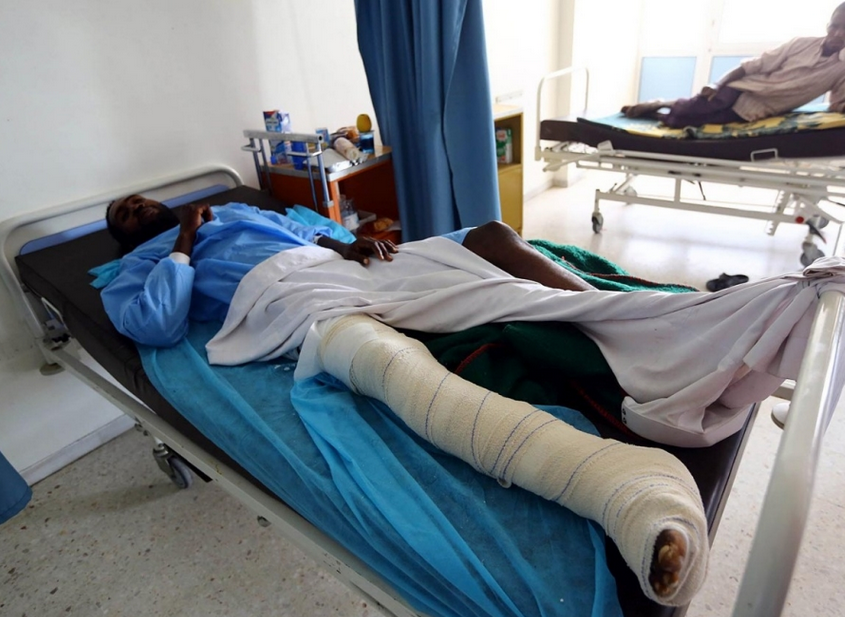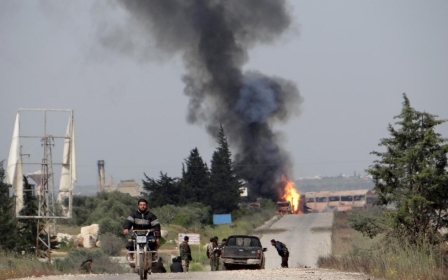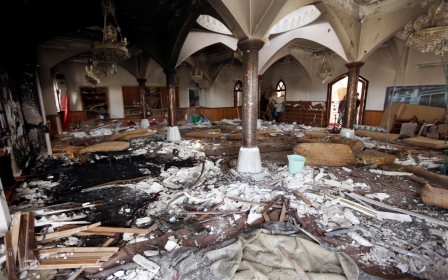Tunisia’s ‘Little Tripoli’, an oasis from the war next door

SFAX, Tunisia - The Tunisian city of Sfax is a bustling coastal enclave which has grown richer in recent years. Unlike many other parts of southern Tunisia, the city is relatively affluent and boasts an array of high-end hotels and fine restaurants, which cater for well-heeled locals and tourists alike.
Even as the conflict in Libya has continued to rage and deteriorate, Sfax has managed to become a shining beacon of cooperation. It has done this despite a rise in tensions between the two neighbouring governments that has been fanned by last month’s Bardo Museum massacre. Twenty foreigners and two Tunisians were killed in the attack, perpetrated by two Tunisian militants who trained in Libya and then returned to unleash devastation and death.
But the growth and tranquillity seen in this little oasis have fed off and thrived on the chaos.
These days, Libyans have become an increasingly common site in the city. They can be seen filling Sfax’s restaurants and heard talking in the busy streets. Some have come to live here permanently, while others are just visiting, but many have chosen Sfax for one key reason – to access its healthcare system that is simply no longer available back home.
As the healthcare system has crumbled in Libya, a swathe of private healthcare clinics have sprung up here to mop up the explosion in demand.
The congested 7 November Avenue, in the heart of the city's new town, is now lined with private medical clinics attempting to cure all manner of ills. Many cater almost exclusively to the so-called health tourists that have flocked here and helped the area earn the nickname "Little Tripoli".
The parking spaces along the boulevard are populated by a near 50-50 split between Libyan registered vehicles and local cars. While many visit Sfax for just a few days before going back across the border, others have chosen the relative calm of the coastal town as a safe hideout until the conflict in their homeland ends.
The cafes and shops here are now very used to seeing strangers come and go. Some even display Libyan TV channels in an effort to create a "home away from home" for their visiting guests.
Ahmed manages one of the bustling cafes along the Libyan stretch of town.
It is a busy lunchtime when he tells Middle East Eye that Tunisians here are more than happy to extend a welcome to their Libyan neighbours.
“We are happy to welcome Libyans coming here because Tunisians and Libyans, we are like brothers,” he said.
“Libyan people have been coming here for a long time, but in recent months [we have seen] an increase of about 20 percent due to the fighting. But people here are happy to help out our neighbours, we are always happy to welcome them here.”
“They keep to themselves and don't cause trouble so we are happy to host them,” he added.
The relationship between the two nations dates back to Ottoman times, when coastal regions of Tunisia and Libya were both governed by the Sultan in Constantinople, or modern-day Istanbul. Ties continued under colonial rule, when Tunisian opponents of the French colonial government would seek refuge in Libya, while Libyans in trouble with their Italian rulers tried to find safety in Tunisia.
Tunisians also welcomed Libyans on both sides during the conflict in 2011 that overthrew leader Muammar Gaddafi, with many Tunisians offering food and housing to their neighbours in their hour of need.
Sfax was among the first places outside Libya to see celebrations following Gaddafi’s ousting. In the early days of the revolution, fighters loyal to Gaddafi were often sent to hospitals in Tunis, while the rebel opposition opted for medical providers in Sfax, which were funded by the opposition National Transitional Council.
Since the 2011 uprising began, it is estimated that almost two million Libyans have fled to Tunisia.
However, the stereotype of the war-wounded in Sfax is only one side of the coin as many travel here for a wider spectrum of medical procedures, enticed by Tunisia's high-quality healthcare system and relatively easy accessibility.
Nip and Tuck
Dr. Hakim Afif is a dentist who runs a busy practice along the November 7 Avenue.
Afif, who has worked in private medicine for 11 years, believes that many Sfaxiens welcome their neighbours thanks to a mutually beneficial relationship that has developed over the years.
“People here are welcoming to Libyans on the streets of Sfax because we are neighbours but also because it is a mutually beneficial relationship for all involved,” Afif said.
“The Libyans receive good medical care and the Tunisians are happy with the business.” he added.
Speaking at his busy downtown practice, Afif marked out distinct characteristics he sees among many of his Libyan patients, whom he claims make up around 30 percent of his total clientele.
“They are always in a hurry to complete the work so that they can return back to their families. Such is the nature of their lives,” Afif said.
“There is a lot of uncertainty in their lives right now.”
Despite this worrying trend, Afif believes that the people of Sfax can offer a rare glimmer of hope to Libyan visitors while also providing a positive example to other conflict areas in the region.
“I think that Sfax shows that further cooperation is possible between Tunisia and Libya but also serves as a model of peace and cooperation for countries across the region,” he said.
His views are echoed by Mahmoud Abdallah, a 48-year-old man from Misrata in northern Libya who is visiting Sfax for treatment for a shoulder injury.
“I have been staying here in Sfax for the past 50 days while I wait for it [my shoulder] to heal,” Abdallah said.
“I enjoy spending my time here. Tunisia is very safe, the rule of law is present here, but in Libya, it is not.”
Despite outward positivity about the relationship between the Sfaxians and their Libyan neighbours, both men admit that the ongoing conflict has caused some financial difficulties.
By now, the financial effects of war have been felt by almost all Libyans, including Abdallah, a businessman, who by his own admission lived a “calm and normal” life in Misrata. The relative ease people like him experience on the coast in places like Tunis and Sfax is a world away from what other poorer Libyan refugees and migrants in Tunisia - many of whom have fled to inland havens – are living through. They can have trouble accessing basic services, but also aid, although some would argue that even the impoverished refugees and migrants have it easier than some of their countrymen back home.
“People are still coming here in droves, but many patients are facing financial troubles brought on by the instability surrounding the war,” Afif said.
Abdallah added that even in the relative tranquillity of Sfax, he is always painfully aware of the war raging in his homeland.
“Life in Misrata is calm compared to other parts of the country, but day-to-day living is becoming more difficult for everybody, the economy is suffering and we don't have as much money to spend as we used to,” Abdallah said.
For Libyans on the streets of Sfax, life in Tunisia provides an all too real contrast with the realities of life back home.
Walid, a 32-year-old from the western city of Yafran, came to Sfax for the treatment of a stomach condition.
“The situation is very bad in Libya. I live in the mountains and there is a lot of a danger right now,” he said.
“Many Libyans come here to live because they are afraid of the current situation. I'm scared too but I can't leave my family. I will live or die in my country - I will never leave for long.”
New MEE newsletter: Jerusalem Dispatch
Sign up to get the latest insights and analysis on Israel-Palestine, alongside Turkey Unpacked and other MEE newsletters
Middle East Eye delivers independent and unrivalled coverage and analysis of the Middle East, North Africa and beyond. To learn more about republishing this content and the associated fees, please fill out this form. More about MEE can be found here.



